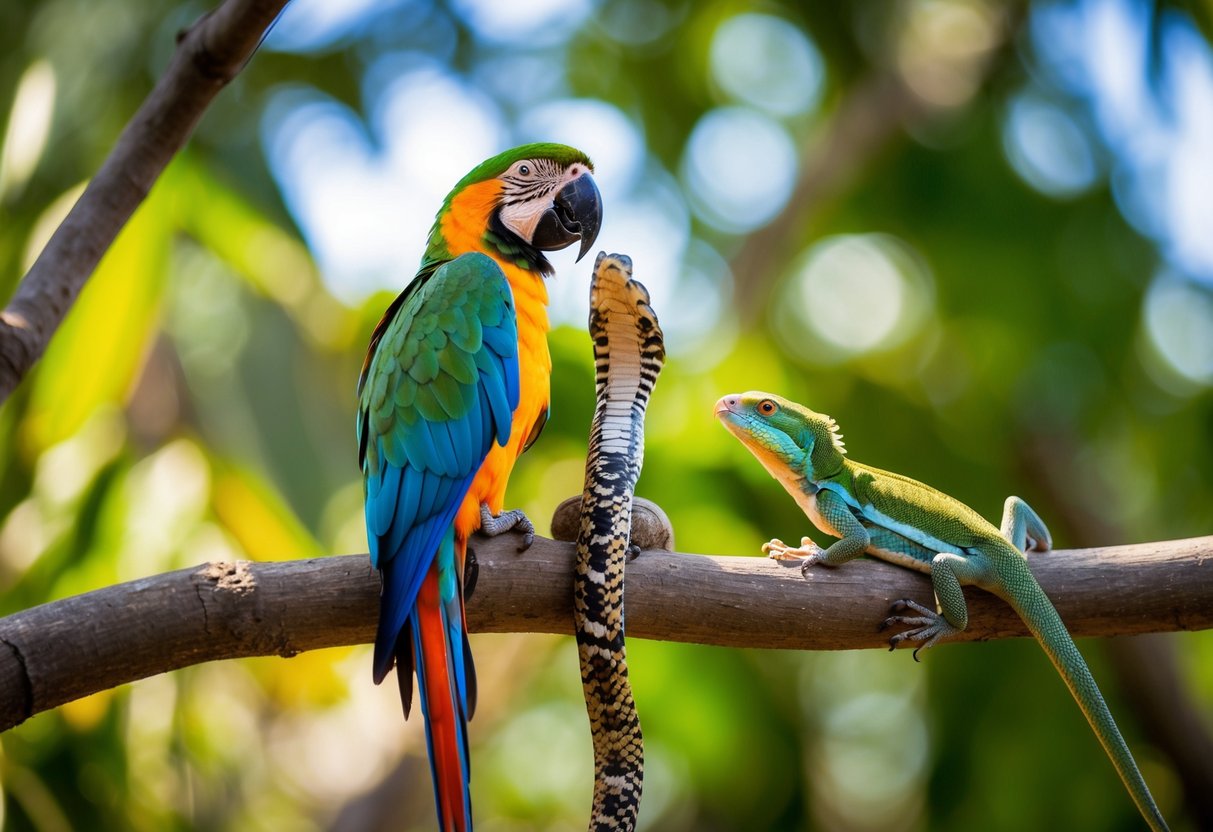
Nutritional Needs and Diet
When caring for exotic pets, understanding their nutritional needs is crucial. This section explores the dietary requirements specific to each species and provides guidelines to help avoid common feeding mistakes.
Species-Specific Dietary Needs
Exotic pets have unique dietary requirements based on their species. For instance, parrots often need a mix of seeds, fruits, and vegetables to ensure balanced nutrition. Meanwhile, reptiles like iguanas may require a diet rich in leafy greens and low in proteins. Understanding these species-specific needs is essential for preventing health issues.
It’s important to research each species’ dietary needs carefully. Some exotic pets may have specific food items they should or shouldn’t eat, which can significantly impact their health. Consulting a veterinarian specializing in exotic animals can provide tailored advice, ensuring that the pet receives all the necessary nutrients.
Feeding Guidelines and Mistakes to Avoid
Feeding exotic pets involves adhering to certain guidelines to ensure their health. One common mistake is overfeeding, which can lead to obesity and related health problems. Another is underestimating the importance of variety; many exotic pets need a diverse diet to avoid nutrient deficiencies.
Owners should establish a consistent feeding schedule to maintain proper nutrition. It’s crucial to provide fresh food, as stale or spoiled items can cause serious health issues. Additionally, using appropriate feeding equipment, such as certain types of bowls or feeding stations, can simplify the process and enhance the pet’s overall well-being.
Health and Veterinary Care
Ensuring the well-being of exotic pets involves regular health care and an awareness of any symptoms that could indicate illness. Proper care can extend the life of the pet and improve its quality of living.
Routine Health Checks and Preventative Care
Regular visits to an exotic pet veterinarian are essential for maintaining pet health. These professionals are specifically trained to handle the unique needs of exotic species. Routine health checks should include physical examinations to assess weight, skin condition, and overall health.
Vaccinations may also be recommended for some species to prevent diseases. Preventative care involves a balanced diet tailored to the species, proper housing conditions, and mental stimulation. These measures help ward off health issues before they manifest. Establishing a schedule for regular veterinary visits helps to identify potential problems early, ensuring long-term well-being for the pet. Routine dental care could also be necessary, depending on the species.
Recognizing Signs of Illness
Understanding the common signs of illness in exotic pets is vital for early intervention. Subtle changes in behavior, such as reduced activity or alterations in eating habits, often signal health issues. Physical signs might include discharge from the eyes or nose, unusual lumps, or changes in coloration.
A lack of grooming or unexplained weight loss can also indicate underlying health concerns. Respiratory issues, such as wheezing or labored breathing, require immediate attention from a veterinarian. Timely recognition of these symptoms ensures the pet receives the necessary veterinary care. Acting quickly can prevent minor issues from becoming severe health complications.



